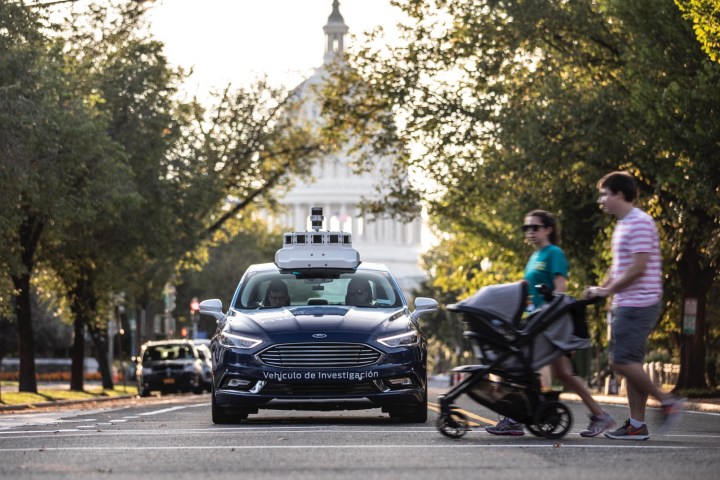 Ford is expanding its self-driving car program, which seeks to find business uses for the technology, to Washington, D.C. The nation’s capital joins Detroit, Pittsburgh, and Miami as a site for Ford’s autonomous car testing.
Ford is expanding its self-driving car program, which seeks to find business uses for the technology, to Washington, D.C. The nation’s capital joins Detroit, Pittsburgh, and Miami as a site for Ford’s autonomous car testing.
“Both Ford and district officials are committed to exploring how self-driving vehicles can be deployed in an equitable way across the various neighborhoods that make up Washington, D.C., in a way that promotes job creation,” Ford autonomous-vehicle boss Sherif Marakby said in a blog post.
Ford plans to deploy prototype self-driving cars in all eight of the district’s wards and to eventually establish business pilot programs in all eight wards as well. The automaker previously launched autonomous-delivery pilots in Florida, in concert with Postmates and Domino’s. These pilot programs are a prelude to Ford’s planned launch of a production self-driving car for commercial fleets in 2021. In addition to delivery services, Ford has discussed ridesharing as a possible use for self-driving cars.
Autonomous cars could potentially take jobs from human drivers, but Ford claims to be working with local D.C. interests to create jobs around the technology. In his blog post, Marakby said Ford will train self-driving car safety drivers locally, and create more training opportunities for automotive technicians. Ford will also establish a terminal for its self-driving car fleet in Ward 5 that will handle dispatching and routine maintenance.
Marakby said Ford chose D.C. as its latest self-driving car testing ground because of its large population and high annual visitor count. Support from Mayor Muriel Bowser was a crucial ingredient as well. Autonomous cars will also serve as a form of four-wheeled lobbying: Demonstrating the cars on local streets complements Ford’s ongoing push for favorable self-driving car legislation.
Ford has taken a slightly different approach to other companies in that it is already preparing to manage fleets of self-driving cars as a business, rather than just a test program. The company has set out to tackle mundane but important issues like coordinating maintenance and figuring out how human customers will interact with a driverless delivery vehicle. While some competitors may beat it to market, Ford may be better prepared to operate self-driving cars in commercial service when 2021 rolls around.


